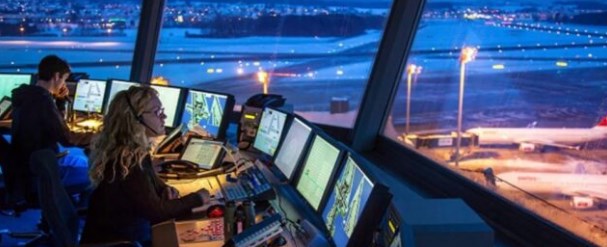The union of air traffic controllers persists in their decision to strike on December 25 and New Year’s, resulting in the suspension of take-offs and landings at Skopje and Ohrid airports. Despite the Ministry of Transport and Communications urging the withdrawal of the strike for the citizens’ benefit, the union maintains its stance.
Aleksandar Tasevski, president of the Union of M-NAV, stated, “There are currently no changes regarding the strike decision. Everything remains as announced.”
There’s a window for agreement and withdrawal of the strike until December 25, the set date for the warning strike. The union’s demands must be met for them to reconsider the strike, initiated due to discrepancies in two announcements made by the M-NAV management.
The union of air traffic controllers contends that these announcements disregard deadlines and involve hiring personnel deemed unnecessary for essential operations. They highlight an advertisement’s duration being shorter than stipulated, one spanning 10 days instead of the mandated 10 working days, and another lasting only three days, two of which fall on a weekend.
These ads pertain to business assistants and a human resources advisor position, which the union alleges is intended for a former M-NAV director. However, the management later refuted the existence of an advertisement for such a role.
Unless the contentious announcements are retracted, the union affirms a strike on December 25, ceasing operations at Skopje International Airport and “St. Apostol Pavle” in Ohrid. Furthermore, during the New Year’s strike, in addition to halting air traffic at both airports, no overflights will be accommodated.
The Ministry of Transport hopes for the strike’s cancellation, with Minister Blagoj Bochvarski urging M-NAV unionists in their last meeting to reconsider the citizens’ welfare. The Ministry emphasizes working on previously agreed-upon issues from October, especially consulting unions before publicizing M-NAV employment notices.
Despite these efforts, another union within M-NAV notes little potential for improvement, citing management’s reluctance to address concerns about biased employment and hiring underqualified personnel for technical roles.
Previously, in October, an agreement between the union and management aimed to extend job postings to a minimum of 10 days to enable fair consideration of non-partisan candidates with the appropriate qualifications. Employment in auxiliary services in M-NAV should involve the knowledge and oversight of air traffic controllers via their union. An independent expert firm’s tender was to analyze M-NAV’s staffing needs and education requirements. Future deployments should be in consultation with air traffic controllers to prevent the employment of security personnel and ensure normal working conditions for controllers.




Comments are closed for this post.